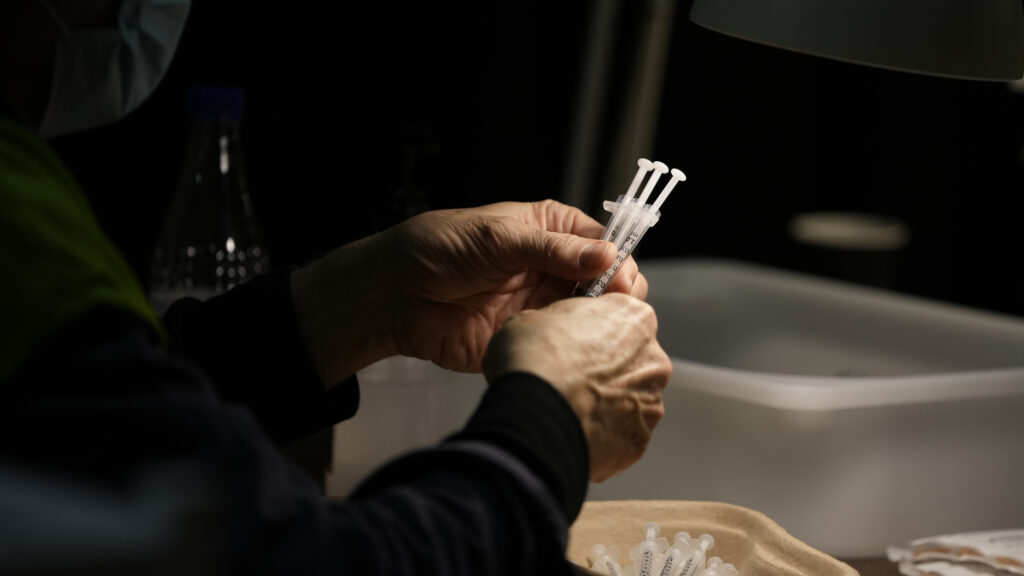Want to stay on top of the science and politics driving biotech today? Sign up to get our biotech newsletter in your inbox.
Our podcast this week centers exclusively on a tantalizing subject: Artificial intelligence in biotech. Give it a listen. Also, Moderna’s RSV vaccine efficacy seems lackluster compared to competitors, and the Bernie Sanders drug pricing song-and-dance did not seem to faze pharma CEOs.
advertisement
The need-to-know this morning:
- Metagenomi, a gene editing startup, raised $94 million in an initial public offering.
Has AI really solved biology?
What can machines teach us about medicine? And what’s a digital twin? We cover all that and more this week on “The Readout LOUD,” STAT’s biotech podcast.
It’s our all-AI episode. First, STAT’s Casey Ross joins us to explain his reporting on how researchers and pharmaceutical firms are using the technology to find new drug targets, design therapies, and improve clinical trials. Then, we talk to Joel Dudley, a partner at the venture firm Innovation Endeavors, about how to discern promising ideas from wastes of time when it comes to AI in biotech.
advertisement
The Bernie Sanders Pricing Show
In a standing room-only hearing, Sen. Bernie Sanders gathered pharma CEOs to discuss prescription drug pricing. Merck CEO Robert Davis, Johnson & Johnson CEO Joaquin Duato, and Bristol Myers Squibb CEO Chris Boerner were among the chief executives in attendance. The event was quite flashy, STAT’s Rachel Cohrs writes, with the intention of drawing public attention to the issue.
But there were few new ideas about how to help patients pay less for their medicines, and lines of questioning fell short: For instance, when Sanders asked Boerner of BMS whether the company would lower the price of Eliquis in the U.S. to match the price it charges in Canada, the answer was a non-starter: “Senator, we can’t make that commitment primarily because the prices in these two countries have very different systems,” Boerner replied.
To which the panel’s top Republican, Sen. Bill Cassidy (La.), said he didn’t “want this committee to turn into a CEO whack-a-mole.”
Awaiting data on Gritstone’s personalized cancer vaccine
We’ll soon learn more about how a personalized cancer vaccine from Gritstone Bio performed in Phase 2 studies to treat an “immunologically cold” form of colon cancer. These neoantigen vaccines are tailored to teach a patient’s own T cells how to recognize mutated cancer proteins specific to an individual’s cancer — and kill them. This particular vaccine is targeting micro satellite-stable colon cancer, a type of tumor that is resistant to immunotherapies.
STAT’s Adam Feuerstein takes a look at what we might see coming out of the trial. Investors remain “cautious” and “uncertain” about the results — which is reflected in the company’s $200 million market value — but if Gritstone shows that its cancer vaccine works, the upside could be dramatic.
Does Moderna’s RSV vaccine lose efficacy faster than others?
Analysts at Cowan took a look at follow-up data from Moderna’s Phase 3 mRNA vaccine trial for RSV, and found that its efficacy dwindles faster than vaccines made by GSK and Pfizer. Specifically, they point out, the vaccine saw a 25% decline in efficacy after 8.6 months, while GSK saw a 7% decline after 14 months. The endpoints are different, but the analysts “are concerned it could negatively affect [Moderna’s RSV vaccine] if confirmed with additional data.”
Initial data from Moderna, it should be noted, showed that in the first six months its experimental vaccine was just as effective as GSK’s, and perhaps more so than Pfizer’s. The CDC will convene an advisory committee on February 28 and discuss Moderna’s vaccine candidate.
More reads
- Kyverna’s $319 million upsized IPO is latest in surge of biotechs going public, BioSpace
- House passes ban on use of QALYs in federal health programs, Endpoints
- Adverum’s gene therapy reduces treatment burden in wet AMD, but questions remain, FierceBiotech

